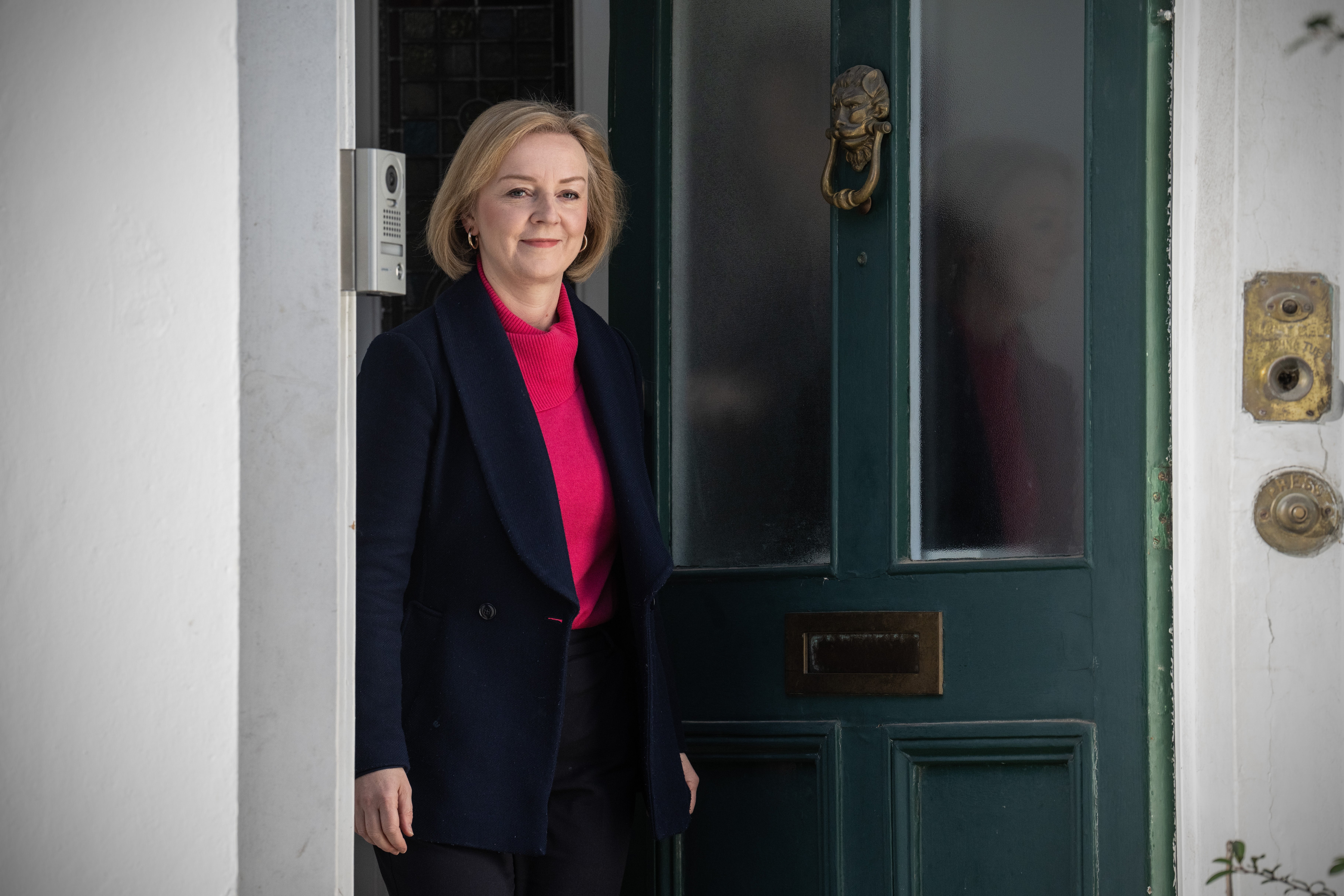The best thing Liz Truss can do for the Conservative Party is get out of the way
Editorial: Although Truss’s reckless actions have damaged her brand of conservatism, it is clear she is determined to fight for it

Liz Truss is back – not, thankfully, in Downing Street, but at the centre of the political debate.
After a period of silence since she departed No 10 last October, the UK’s shortest-serving prime minister has penned a 4,000-word article for The Sunday Telegraph blaming her spectacular downfall on “a very powerful economic establishment”.
Although Ms Truss admits she is not “blameless”, there is little contrition and no apology for the chaos triggered by her rush for unfunded tax cuts, and the problems it continues to cause for millions with higher mortgage payments. Few would argue with her point about the UK’s poor record on economic growth. But if her diagnosis was right, the prescription almost killed the patient.
She admits that “our communication could have been better” – an understatement, since she failed woefully to prepare the ground for a mini-Budget which provoked a meltdown on the financial markets. For the most part, she resorts to the politicians’ favourite trick of blaming everyone else – the Treasury, the Whitehall machine, the Office for Budget Responsibility, and her fellow Conservative MPs for not supporting her.
Although she complains that “large parts of the media and the wider public sphere had become unfamiliar with key arguments about tax and economic policy and over time sentiment had shifted left-wards”, the suggestion that the financial institutions who play a vital role in ensuring market confidence in UK plc are “left wing” will produce a wry smile from many on the left.
Ms Truss’s thesis does not add up any more than Kwasi Kwarteng’s mini-Budget did. She fails to recall that her criticism of those institutions contributed to the loss of market confidence. She complains that the Treasury failed to warn her about the possible impact on pension funds, which forced the Bank of England to intervene.
Yet the threat to liability-defined investment by defined-benefit pension funds was caused by the market turmoil she had unleashed. Treasury officials, though kept in the dark about some of the mini-Budget’s detail, did warn her about the risks of cutting taxes without putting the public finances on a sustainable path.
At first glance, Ms Truss has a point when she claims that “the system” she rails against did not give her a “realistic chance” of seeing through her go-for-growth policies and did not accept or respect her mandate.
It is true that she won the argument for immediate tax cuts against Rishi Sunak in last summer’s Tory leadership election. However, she deliberately held back the details of her proposed cuts during the contest; notably the abolition of the 45p top rate of tax. And her mandate was from the party’s 170,000 grassroots members, not the public (like Boris Johnson’s 2019 mandate was). Mr Sunak enjoyed more support than Ms Truss among Tory MPs, and his warnings about the danger of unfunded tax cuts were totally vindicated by events.
Ms Truss does not find room for Mr Sunak’s name in her 4,000 words, but criticises the rise in corporation tax in April as “economically detrimental”, hinting at her view of his approach when she says she did not want to “manage decline or to preside over our country sliding into stagnation”.
Her re-emergence into the limelight is a headache for the prime minister. Many of his MPs agree with her central argument on growth and, despite the catastrophe last autumn, are impatient for tax cuts in the 15 March Budget. They will probably be disappointed. Remarkably, Truss allies regard Mr Sunak as a social democrat; in fact, he is a fiscal conservative, with a stronger claim than Ms Truss to Margaret Thatcher’s mantle because she balanced the books and tackled inflation before reducing taxes.
Although Ms Truss’s reckless actions have damaged her brand of conservatism, it is clear she is determined to fight for it. That is bad news for Mr Sunak. To have any chance of winning the next general election, he needs his party to rally behind him.
The loud noises from Ms Truss and Mr Johnson, as they try to defend their failed premierships, can only remind voters of their disastrous mistakes, stoke damaging divisions among their faction-ridden party, and harm the Tories’ already slim chances of retaining power.






Join our commenting forum
Join thought-provoking conversations, follow other Independent readers and see their replies
Comments